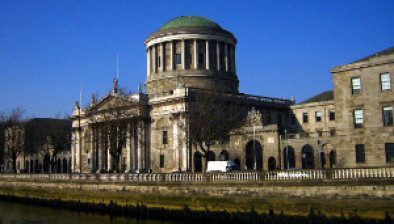High Court: Costs in the cause ordered after employment injunction was rendered unnecessary

The High Court has determined that the legal costs of an employment injunction application should be costs in the cause after the motion was rendered unnecessary.
The plaintiff had sought to be reinstated by his employer following his suspension on full pay during an ongoing investigation. However, the application did not go ahead after the defendant decided to end the investigation and allow the plaintiff back to work.
Both sides had submitted that they were entitled to their costs, with the defendant claiming the motion was premature and the plaintiff claiming that the unilateral action of the defendant overtook the motion.
Background
The plaintiff was employed by the defendant company, AV Pound & Co Limited. The plaintiff was a shipping coordinator. As part of his contract, he was provided with a booklet which outlined that any personal relationship with another employee had to be reported to HR.
From at least January 2021, but possibly before, the plaintiff was romantically involved with a fellow worker. The co-worker eventually disclosed the relationship to her manager in February 2021, which resulted in a series of investigation meetings. On 9 March, the plaintiff was suspended with pay while the investigation was ongoing. A week later, the plaintiff’s solicitor demanded an end to the investigation and for the plaintiff to be returned to work. It was claimed that the investigation was contrived to terminate the plaintiff’s employment and that he was suffering harassment.
The defendant engaged a third-party investigator, who reported that it was possible for conflicts of interest to occur between a supply chain manager and a logistics coordinator on the working environment of a small and closely-knit team. The defendant took the view that the plaintiff was being treated fairly and that the matter was being dealt with in accordance with the employment contract.
The plaintiff ultimately issued a plenary summons in April and applied for interlocutory relief. The motion proceeded with the exchange of affidavits. However, on 20 April, the defendant wrote to the plaintiff stating that the board had considered the expert report and decided to lift the suspension with immediate effect. The defendant also filed an affidavit which set out that the lawfulness of the investigation and the potential conflict of interest which arose. The defendant also exhibited messages which suggested that the plaintiff had not conveyed “the full picture” of the decision to report the matter to HR.
The co-worker had also issued proceedings against the defendant and that case settled on 23 April, where it was agreed that the co-worker would not return to work. On 28 April, it was decided that there was no need to continue the investigation as the potential conflict of interest had ended. The plaintiff was invited to strike out the proceedings with no order as to costs.
The plaintiff maintained that he was entitled to his costs as he had obtained a result that was as good as the relief he had sought in the motion. It was claimed that the ending of the investigation and suspension was an admission that both were unlawful. It was said that the proceedings were rendered moot by defendant’s decision to settle the co-worker’s action and ensure she did not return to work.
High Court
Delivering judgment in the case, Mr Justice Senan Allen began by pointing out that the proceedings were not, in fact, moot. It was noted that the plaintiff’s statement of claim sought a declaration that the suspension was unlawful as well as damages for breach of contract and exemplary damages.
Considering Lofinkakin v. Minister for Justice [2013] 4 I.R. 274, the court held that there was still an issue in the case as to whether the defendant was entitled to suspend the plaintiff in the matter it did and engage in the investigation. There was also an issue as to whether the lifting of the suspension was a direct response to the plaintiff’s proceedings or a result of the settlement in the co-worker’s action.
The authorities were clear that “the task of assessing where responsibility for the costs of an interlocutory injunction application should justly lie is much more complicated than looking at whether the relief sought was granted or refused,” the court said.
The court said that it was “unconvinced” that the motion was necessary in the first place, because most employment injunctions seek the continued pay of the employee rather the return to work, which was only granted in exceptional cases. It was still to be decided if there was any lawful basis for the defendant’s actions, the court said.
However, the court was also not satisfied by the defendant’s submissions. The motion could not sensibly be said to have been withdrawn, as had been contended by the defendant. Further, the submission that the defendant was entitled to act as it did was an invitations for the court to determine the substance of the dispute (Cunningham v. President of the Circuit Court [2012] 3 I.R. 222 applied considered).
The court said it was “speculative at best” to say that non-interference by the plaintiff with the investigative process would have led to a fair result. On the defendant’s case, the impasse between the parties would not have resolved without either the plaintiff or the co-worker resigning.
The mere lifting of the suspension did not show that the proceedings were unnecessary. The court cited ACC Bank plc v. Hanrahan [2014] 1 I.R. 1, where it was held that there may often be good reason to avoid awarding costs for interlocutory motions before full facts have been determined. As such, Mr Justice Allen said that “it will often be necessary to look beyond the outcome of the motion to decide where responsibility for the costs should justly lie”.
Ultimately, the resolution of the core disputes between the parties would have to go to trial, the court said. The court emphasised that it had not determined any issue in the motion because the motion had never been heard. As such, it was inappropriate to award costs on what would have happened if the motion was run.
Conclusion
The court concluded that the costs of the injunction application should be costs in the cause of the action.











